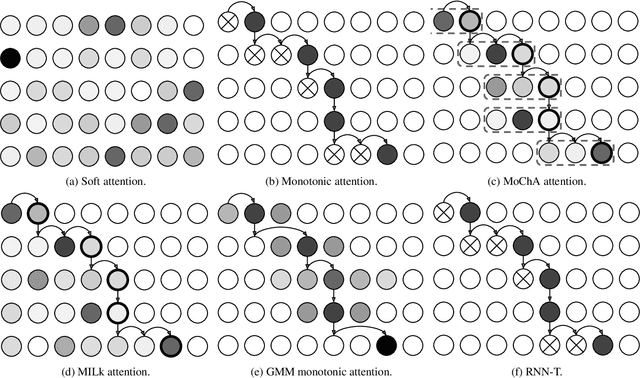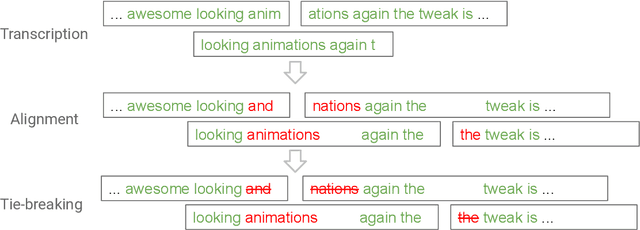Sergey Kishchenko
A comparison of end-to-end models for long-form speech recognition
Nov 06, 2019


Abstract:End-to-end automatic speech recognition (ASR) models, including both attention-based models and the recurrent neural network transducer (RNN-T), have shown superior performance compared to conventional systems. However, previous studies have focused primarily on short utterances that typically last for just a few seconds or, at most, a few tens of seconds. Whether such architectures are practical on long utterances that last from minutes to hours remains an open question. In this paper, we both investigate and improve the performance of end-to-end models on long-form transcription. We first present an empirical comparison of different end-to-end models on a real world long-form task and demonstrate that the RNN-T model is much more robust than attention-based systems in this regime. We next explore two improvements to attention-based systems that significantly improve its performance: restricting the attention to be monotonic, and applying a novel decoding algorithm that breaks long utterances into shorter overlapping segments. Combining these two improvements, we show that attention-based end-to-end models can be very competitive to RNN-T on long-form speech recognition.
 Add to Chrome
Add to Chrome Add to Firefox
Add to Firefox Add to Edge
Add to Edge